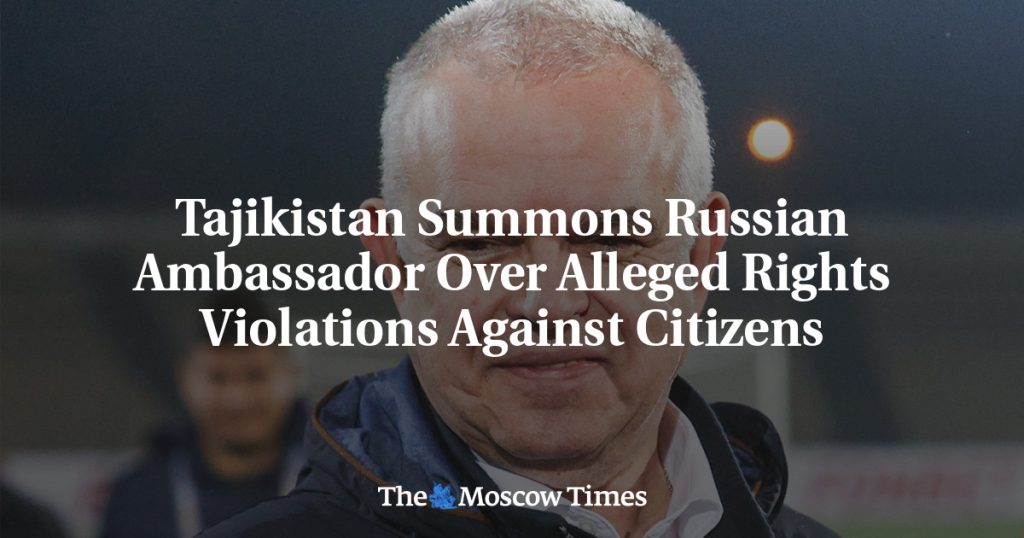Tajikistan’s Foreign Ministry has recently summoned Russia’s ambassador in Dushanbe to address alleged rights violations against Tajik citizens in Russia. This move came after a group of armed men with suspected ties to the Islamic State attacked Crocus City Hall outside of Moscow, killing 145 people. The suspects were reportedly from Tajikistan, leading to increased security checks on Central Asian migrants in Russia. The Tajik government has expressed serious concern over the treatment of Tajik citizens in Russia, citing violations of their rights and freedoms.
Following the attack, Russian law enforcement authorities arrested four Tajik men suspected of being involved in the incident. The suspects appeared in court with visible injuries, leading to accusations of torture by Dushanbe. Tajikistan’s Foreign Ministry condemned the alleged mistreatment of its citizens and called for action to address the issue. The situation escalated further when Tajik citizens arriving in Russia were reportedly being denied entry in large numbers, prompting the Tajik government to invite the Russian ambassador to discuss the issue.
The issuance of an official note of protest by Dushanbe reflects growing tensions between Tajikistan and Russia over the treatment of Tajik citizens in Russia. The Tajik government expressed concern that the rights violations were specifically targeting its citizens, which goes against the spirit of the bilateral relationship between the two countries. Russia’s Foreign Ministry spokeswoman clarified that the increased border checks were temporary and not based on nationality, but Tajikistan remained adamant in its criticism of the situation. The diplomatic exchange between the two countries highlights the delicate balance of power dynamics and human rights considerations in their relationship.
The meeting with Russian ambassador Grigoryev and the issuance of the note of protest have ignited further discussions on the state of relations between Tajikistan and Russia. The Tajik government’s decision to escalate the issue through diplomatic means underscores its commitment to protecting the rights of its citizens abroad. Russia’s response to the concerns raised by Tajikistan will be crucial in determining the future course of their relationship. Both countries have a vested interest in maintaining stability and cooperation, but the treatment of Tajik citizens in Russia has become a point of contention that needs to be addressed promptly.
The ongoing discussions between Tajikistan and Russia are likely to focus on finding solutions to the rights violations and ensuring the safety and well-being of Tajik citizens in Russia. Both countries have a shared history and cultural ties that should ideally underpin their relationship, making it essential to address any issues that may threaten their mutual trust. The outcome of these discussions will have implications for bilateral cooperation and the security of Central Asian migrants in Russia. It remains to be seen how both parties will work together to resolve the current tensions and prevent similar incidents from occurring in the future.
Overall, the situation involving Tajik citizens in Russia underscores the complexities of international relations and the importance of upholding human rights standards. The diplomatic exchange between Tajikistan and Russia reflects the challenges faced by countries in addressing rights violations against their citizens abroad. Moving forward, both countries will need to find common ground and work towards solutions that respect the rights and dignity of all individuals involved. It is essential for Tajikistan and Russia to engage in constructive dialogue and cooperation to overcome the current challenges and strengthen their relationship for the benefit of both countries and their citizens.















